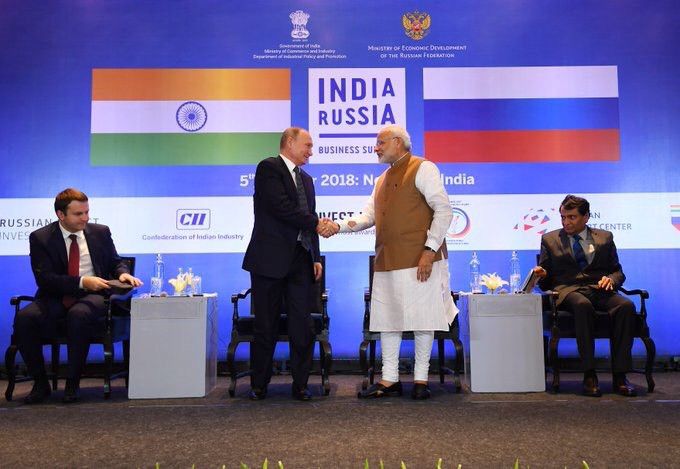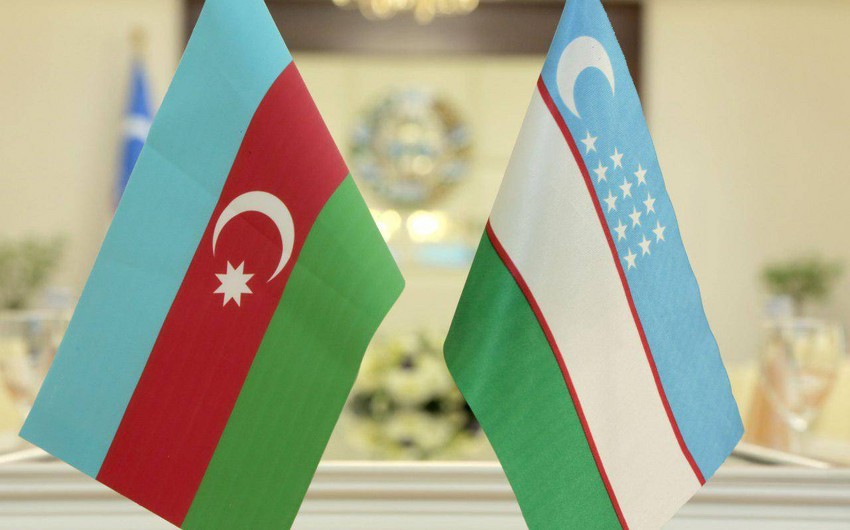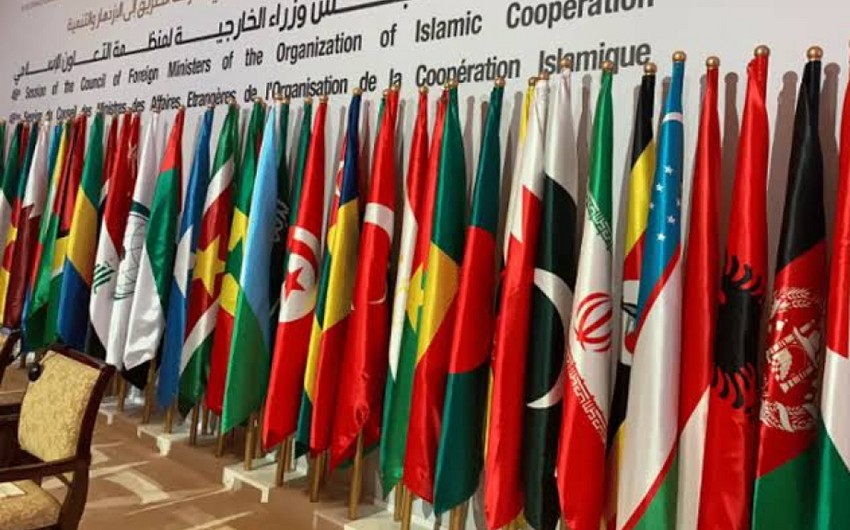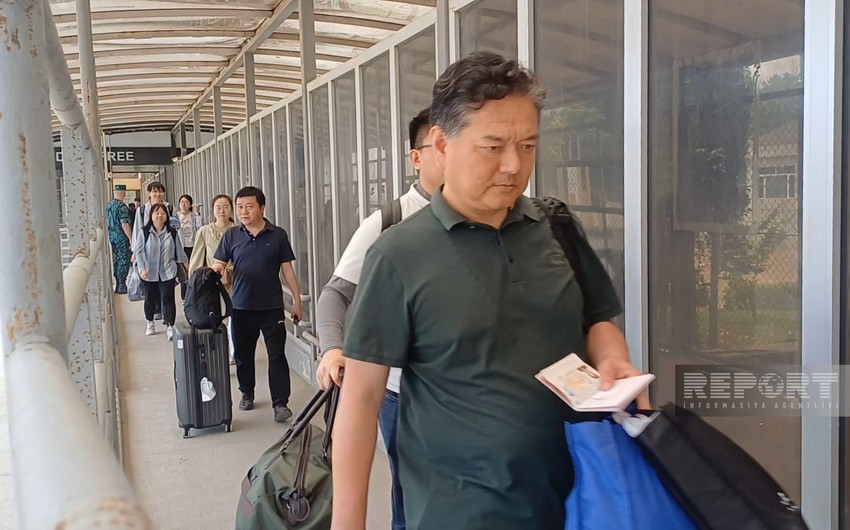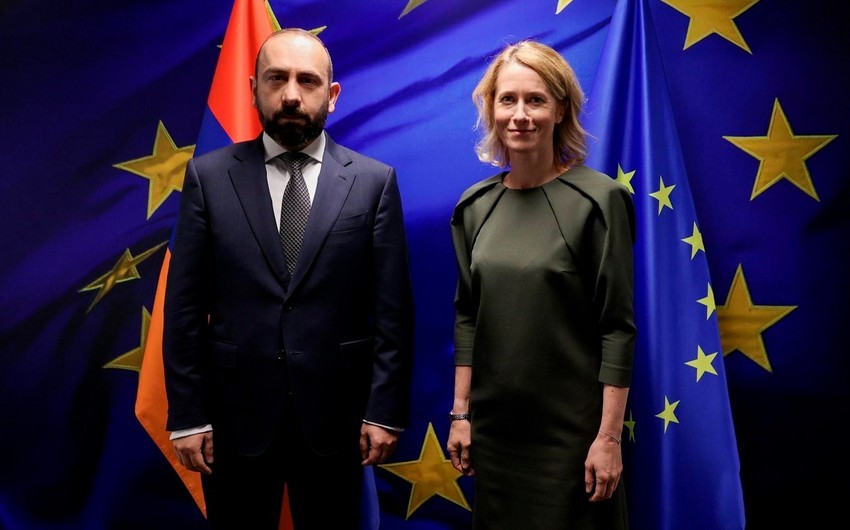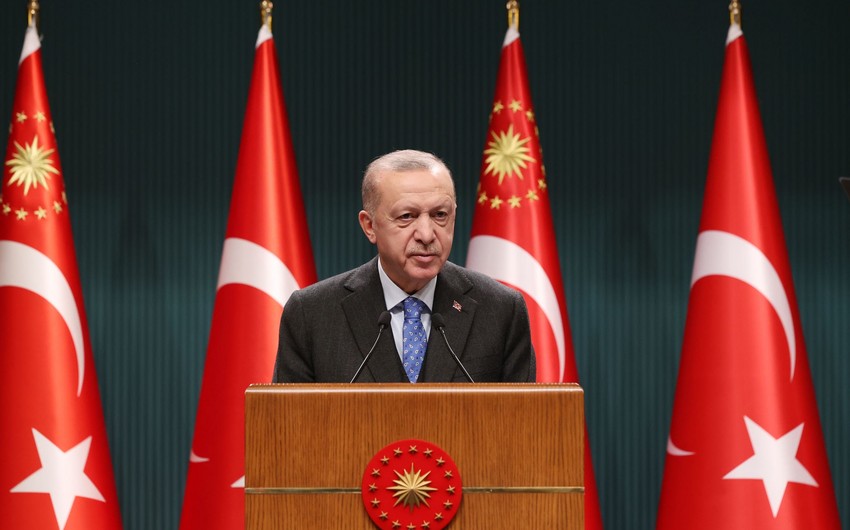On 6 December, the President of Russian Federation Vladimir Putin, with Foreign and Defense ministers Sergey Lavrov and Sergei Seygey Shoigu, paid the official visit to India.
During the visit, President Vladimir Putin and his counterpart India’s Prime Minister Narendra Modi held the discussions on the bilateral cooperation in the spheres of economy, investment, energy, high technology and military. Both leaders have stressed the importance of conducting the dialogue and negotiations on ensuring stability and peace in Eurasian region.
At the same time, Defense ministers of Russia and India have signed an inter-governmental agreement on a program for military-technical cooperation for 2021-2030. According to the agreement, both countries will provide the joint actions in the development of military industry and supply of armaments and other military hardware.
Eurasia Diary presents an exclusive interview with Andrew Korybko, who is a Moscow-based American political analyst, regarding the recent developments around the Indian – Russian relations, and its geopolitical impacts in the region of Eurasia.

He is a specialist on the US strategy in Afro-Eurasia, China's Belt & Road Initiative, and Hybrid Warfare.
- Mr Korybko, we know that Russia and India have developed and advanced bilateral cooperation in the economy, investment, high technology, space, nuclear energy, medicine, military and other spheres. Both Moscow and New Delhi share the joint efforts within the organizations, such as G20, BRICS and the Shanghai Cooperation organization. At the same time, both powers of Asia have engaged in the joint struggle with terrorism and other insecurities in the region. Please tell us, what are geopolitical contributions of Indian-Russian strategic relations to the arrangement of the main issues in connection with peace, security and stability in Eurasian region?
- Russia’s and India’s grand strategies are mutually complementary in the sense that they both seek to balance Eurasian affairs in the emerging Multipolar World Order. They aim to achieve this by coordinating their efforts through multilateral institutions such as those that were just mentioned and intensifying bilateral cooperation, especially in the economic, technological, military, and regional integration spheres. The military aspect is especially important since India and Russia are one another’s largest arms partners. Their respective ties aren’t aimed against any third parties like China, but aimed at bolstering India’s defensive capabilities so that it and Beijing can hopefully pursue political solutions to their disputes. This explains why Russia sells equally strategic and high-quality weapons to India and China. The purpose in maintaining the balance of power between them is to counteract the US’ efforts to divide and rule these rising Asian Great Powers. This strategy can be referred to as Russia’s “military diplomacy” since it’s using military means (arms exports) for political ends (peacefully resolve disputes).
- Do you think that India, as a great power, could become the strategic partner of Russia in the international arena?
- India is arguably Russia’s most strategic partner anywhere in the world after the Putin-Modi Summit saw both Great Powers agree to the framework for their relations up to 2030. Importantly, the resultant document included a whopping 99 points of agreement, including clause 93 which states that “The sides agreed to explore mutually acceptable and beneficial areas of cooperation in third countries especially in the Central Asia, South East Asia and Africa.” In other words, India has become Russia’s preferred partner in what can be described as “Greater South Asia” or the broader “Indo-Pacific”: South Asia, Central Asia, Southeast Asia, and Africa. Russia is also inviting India to invest in its Far East and Arctic regions. This will thus form a crucial axis of peace, stability, and development in the central part of the Eastern Hemisphere all across the 21st century. It’s literally game-changing in the geostrategic sense.
- What are important aspects of the military cooperation between Russia and India in the framework of their strongest bilateral partnership? How do you assess the relations between two Asian powers in the joint production of weapons?
- Military relations have traditionally formed the core of their special and privileged strategic partnership so it’s natural that they focused so much on them in their latest “Partnership for Peace, Progress, and Prosperity” agreement. Joint military exercises and the joint production of military equipment will become crucial for ensuring both of their security needs and signaling the grand strategic importance of their renewed partnership to others. Once again, it must be emphasized that none of this is aimed against any third party, but is Russia’s ambitious means of attempting to maintain the balance of power in Afro-Eurasia between China and India so as to deter any potential military conflict between them and thus encourage a political solution to their many disputes.
- According to Indian Foreign Secretary Harsh Vardhan Shringla, Russia has begun the deliveries of long-range S-400 missile defense system to India. Please tell us, what are contributions of Russian produced weapons to Indian Army? And what will the reaction of the US be towards India’s purchase of S-400 defense systems?
- The majority of India’s arms are either Soviet- or Russian-produced, though New Delhi has made enormous strides in recent years in diversifying its suppliers. Still, Moscow remains its top and most preferred partner because it’s proven its reliability over the decades and its unwillingness to politicize military exports or India’s partnerships with third parties. The US will be displeased since it hoped to use its recent inroads into India’s military-industrial complex to gradually divide these two special and privilege strategic partners. New Delhi is very strongly signaling to Washington that it will not allow this plot to succeed. That’s because India is now aware of it and feels uncomfortable with the US politicizing military exports and New Delhi’s historical ties with Moscow.
- We know that both Russia and China are the strongest strategic partners in Eurasia, as well as in the international arena. However, when it comes to the relations between China and India, we observe the different situation. Both regional powers have long-running unresolved disputes on some parts of the Himalayan Mountains. Both of them are reluctant to share common interests or come to common understanding under the umbrella of Asia. Please tell us, what are impacts of the development of bilateral relations between Russia and India on the Chinese-Russian strategic partnership?
- The recently renewed special and privileged strategic partnership between Russia and India, formally described as the “Partnership for Peace, Progress, and Prosperity”, isn’t aimed against China and therefore shouldn’t have any adverse effect on the Russian-Chinese Strategic Partnership. It’s worth mentioning that the second-mentioned strategic partnership also isn’t aimed against India, though some in New Delhi wrongly worried that it might have been, which explained some of the distrust in Russian-Indian relations in recent years. The same can be said about how some in Moscow viewed the comprehensive military-strategic partnership between India and the US, especially after New Delhi agreed to join the Washington-led Quad. Russia and India finally held long-overdue candid discussions about their mutual concerns of each other’s long-term grand strategic trajectories and thus resolved all misunderstandings between them. This was evidenced by Foreign Minister Lavrov’s trip to New Delhi last spring and his Indian counterpart’s one to Moscow shortly afterwards. They realized that instead of aspiring towards different ends, they actually both endeavored the same but just went through it in their own way: namely, to maintain the balance of power in Eurasia. This led to them realizing that it’s mutually beneficial to pool their balancing capabilities through their renewed partnership so as to most optimally achieve this. That’s why the latest meeting can be described as geostrategic ally game-changing.
Yunis Abdullayev

